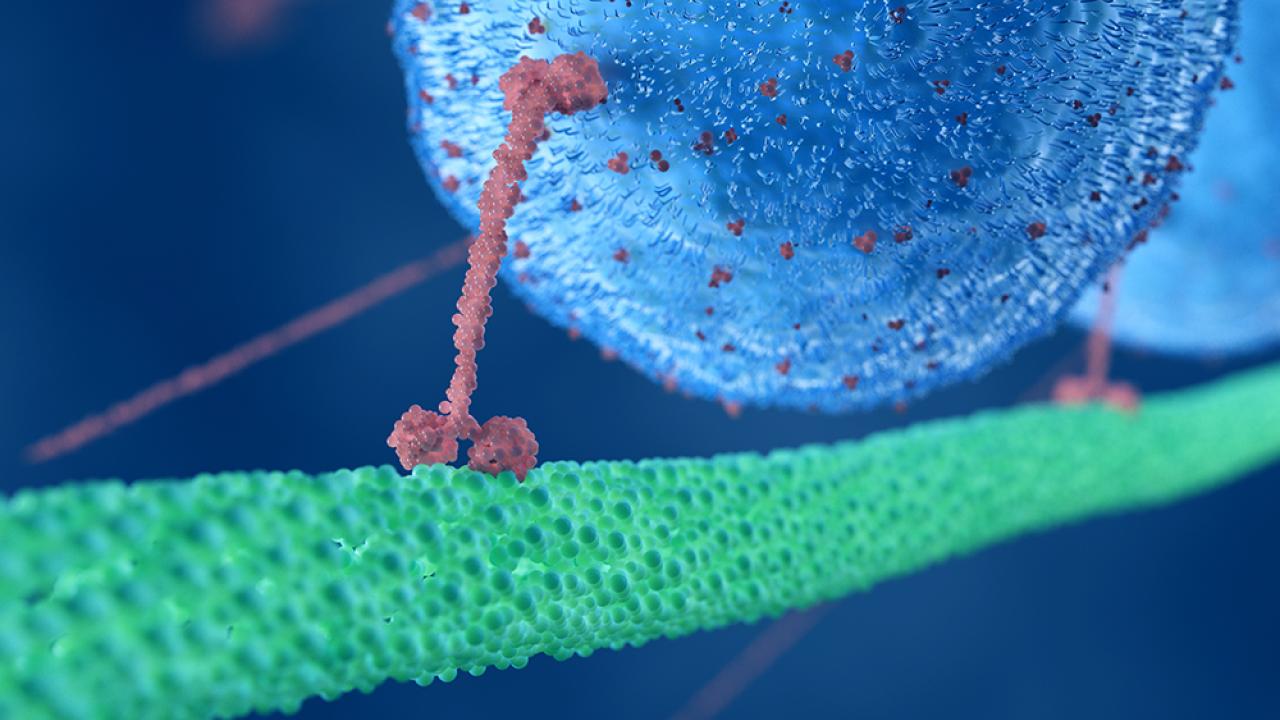
UC Davis Receives Philanthropic Support to Examine Under-Studied Pediatric Neurodegenerative Disorder
The laboratory of Richard McKenney, an assistant professor in the Department of Molecular and Cellular Biology has published new research on the role of the KIF1A motor protein in degenerative disorders in children.
KIF1A and degenerative disorders
McKenney’s lab studies several types of motor proteins, which move along cytoskeletal structures within cells called microtubules. His lab has a special interest in KIF1A, which is a critical cargo-transport motor specifically within neurons. Mutations in the KIF1A gene cause a heterogenous neurodegenerative disorder – known as KIF1A Associated Neurological Disorder (KAND), for which there is currently no cure – in children.
The condition can affect both the brain and body, such as the eyes, muscles and nerves and there is a wide range of symptoms, which vary in severity and appear at birth or in early childhood.
“KIF1A has become more prominent in recent years because we’re realizing there are a number of mutations in the gene that cause various types of hereditary spastic paraplegia (HSP),” said McKenney. Symptoms manifest as a degenerative loss of mobility that typically begins in the lower limbs. However, until recently the connection between KIF1A and HSP was not widely appreciated in the medical community.
“For a long time, people would diagnose children with HSP without being able to determine the underlying genetic cause,” explained McKenney. “But as our understanding of the KIF1A gene has increased, more and more people are sequencing children with HSP and finding that they have KIF1A mutations.”
While KAND is still thought of as a rare disorder, increased attention on KIF1A is helping researchers understand that it may be more common than previously thought – an important step in understanding and developing treatments for the disorder.
Philanthropic support
While individual labs like McKenney’s do not typically receive funding directly from foundations, his lab’s long-standing research interest in the cytoskeleton, and in particular the motor proteins that utilize it as tracks for intracellular transport have allowed a broader understanding of mutations in the KIF1A protein. As a result, McKenney’s lab attracted the attention of Luke Rosen, whose daughter has a KIF1A mutation and a resulting degenerative condition.
A veteran stage and screen actor, Rosen is the founder of KIF1A.org, a patient advocacy foundation run by parents and families of children affected by KAND. In 2020, Rosen visited Davis and gave a seminar that highlighted the role of patient advocacy groups in pushing for more research into diseases that are considered rare and struggle to receive funding.
The KIF1A.org foundation donated to McKenney’s lab to fund two years of study into the KIF1A gene. The effort was spearheaded by Aileen Lam ('19), who performed research in McKenney’s lab while she was an undergraduate. Lam received the 2019 Hanson Family Undergraduate Research Publication Award, which supports the publication of undergraduate research.
Speaking for the families affected by KAND and the foundation, Rosen’s message is one of thanks and hope. “Dr. McKenney’s work, commitment and compassion for families affected by KAND gives a science-driven hope to all of our families – his effort to collaborate with our children’s physicians, the research community and KIF1A.ORG is what accelerates the discovery. We know this seminal study will lead to a vital understanding of the biology of this devastating disease and open the door for development of treatment for our children. Our foundation is proud to continue to support this work in every way possible.”
The research from McKenney’s lab – among the first of its kind on one of the more common KIF1A mutations known to cause KAND – is now published in the journal Science Advances
Media Resources
- Science Advances
- KIF1A.org
- Richard McKenney, Department of Molecular and Cellular Biology, rjmckenney@ucdavis.edu
